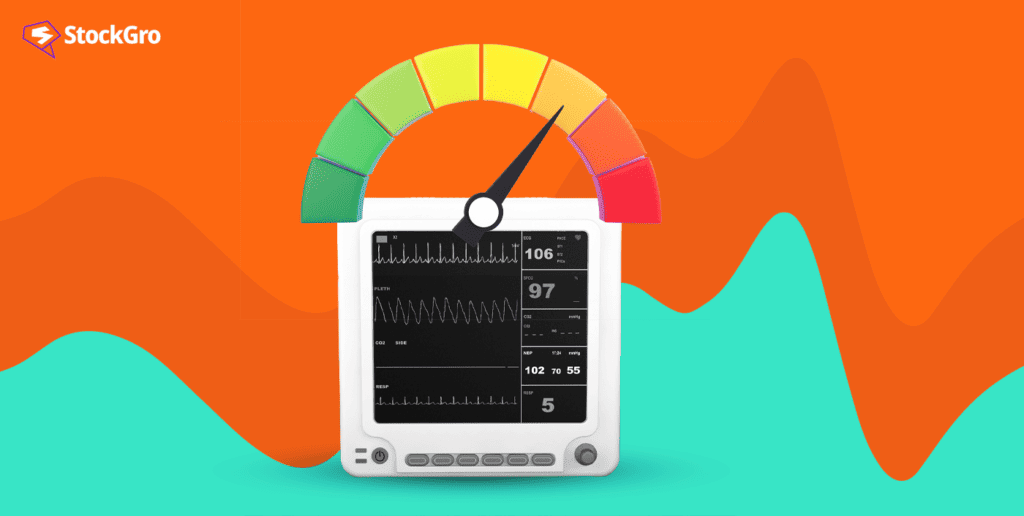
CIBIL stands for Credit Information Bureau (India) Limited. It records and maintains financial data of individuals and companies. A CIBIL score, or credit score, reflects an individual’s creditworthiness, assisting lenders in evaluating repayment capacity.
Scores range from 300-900, with higher values denoting a stronger credit profile. This determines one’s ability to secure loans. This article explains what a CIBIL score stands for and how it affects the ability to borrow and get loans in the future.
What is a CIBIL score range?
The CIBIL score ranges from 300 to 900. A higher score means better creditworthiness, while a lower score suggests potential credit issues. Generally, if your score is above 750, you’ll find it easier to get loans.
However, different lenders might have their own rules for giving credit. It’s wise to check a lender’s specific conditions before applying.
Knowing your score and how it impacts your ability to get credit is crucial. It’s a good practice to be aware of your CIBIL score and work on enhancing it if needed. By following simple steps, you can check your score online. Repairing your credit score to a really good one is often achievable. Most times, all you need to do is pay more attention to your debt.
What does CIBIL credit history mean?
CIBIL credit history shows a person’s borrowing and payment patterns. It notes the loans taken, amounts borrowed, payments done, and any missed or late payments from before. CIBIL score lets lenders see if a person can pay back loans in the future. A good history can lead to better loan deals.
In simple terms, CIBIL stands for Credit Information Bureau (India) Limited. It helps lenders decide if a person is good for a loan.
You may also like: Credit history: What is it and why it matters?
Benefits of CIBIL credit score
A CIBIL score is key when you want to get a loan or credit. This score tells lenders if you’re likely to pay back the money you borrow. A high score can mean better loan deals and lower interest rates.
A low score can make it hard to get loans or credit. It’s important to have a good credit history and keep your CIBIL score updated.
● Quick Loan Approvals
When your CIBIL score is good, getting loans or credit becomes simpler. Lenders feel more confident giving money to people with a high score because they’ve shown they can handle debt.
● Beneficial Interest Rates
A strong CIBIL score can lead to lower interest rates when you borrow. This means you’ll pay less money in the long run.
● Better Credit Choices
Having a good CIBIL score means more choices when borrowing. This could be bigger loans or more time to pay them back. It also makes it easier to change lenders or shift balances between credit cards.
How is CIBIL score calculated?
The CIBIL score is determined by reviewing a person’s past borrowing activities. It looks at loans taken, amounts borrowed, payments made, and any missed or late payments.
A higher score suggests that the person has been consistent with their repayments. Having a high score can help in getting favorable loan conditions and interest rates from lenders. Many lenders consider this report as the deciding factor in granting a loan. Let’s go on an adventure to learn all about the commercial CIBIL report and how it affects Indian businesses.
How to improve your CIBIL score?
To enhance your CIBIL score, consider the following steps:
- Timely payments: Always pay your loans and credit card bills on schedule. Late payments can damage your CIBIL score, making it difficult to get future loans or credit.
- Manage your debt: Carrying a lot of debt can negatively affect your score. It’s essential to reduce any existing debt and avoid maxing out your credit cards.
- Regularly check your score: Keep an eye on your CIBIL score. This allows you to spot and correct any mistakes or issues that might bring it down.
Also Read: Understanding credit cards: What are they, and how do they work?
Factors that affect your CIBIL Score
Here’s a breakdown of the factors that play a role in calculating your CIBIL score:
● Payment history:
Your payment track record forms a significant part of your credit score. Consistently paying your bills on time boosts your score, while delays or defaults tarnish it.
● Credit utilization:
The portion of credit you’re using compared to your overall credit limit also impacts your score. Keeping your credit use low is seen favorably, whereas high credit utilization can bring down your score.
● Length of credit history:
The duration for which you’ve managed credit also matters. A longer credit history, with a good payment record, works in your favor.
● Type of credit:
The variety of credit you have—like loans and credit cards— also plays a role. A mix of credit types can be beneficial, and it’s good to have a balance.
● Other factors:
Other elements like how often you apply for new credit or the number of hard inquiries on your credit report also affect your CIBIL score. Too many loan applications within a short span can be seen as a red flag.
How to check CIBIL score online – step by step:
Here’s a simplified guide to check your CIBIL score online:
- Register with an online credit monitoring service
Begin by registering with a service that monitors credit scores. This service offers insight into your credit report which sheds light on how your score is calculated and the factors influencing it over time.
- Take a look at your credit report
Upon registration, you can now access your credit report. This report breaks down how your CIBIL score is calculated and how factors like payment history, credit utilization, and the length of credit history have played a part.
- Find out your CIBIL score
With the report now accessible, you can see your actual CIBIL score, prominently displayed at the top. This score reflects how your credit activities have impacted it over time.
After checking your score, you might want to improve it if it’s lower than you’d like. Consider timely payments of loans and bills, lowering credit utilization, and keeping a regular check on your CIBIL score.
Difference between CIBIL report and CIBIL score
A Cibil report gives a person a clear picture of their credit history, showing how their score comes about. It helps people see how different things like paying bills on time and using credit wisely, play a part in shaping their Cibil scores over the years.
On a different note, the Cibil score is a simple number that tells about a person’s credit standing. It’s figured out by looking at various things like how regularly they pay their bills, how much debt they have, and how long they’ve had credit for.
The scores go from 300 to 900. A higher score is a thumbs up, showing that a person is good with credit, while a lower score is a warning sign, showing that they might not handle credit that well.
Conclusion
Cibil score is like a financial report card. The better the score, the better the chances of getting a loan with good terms and lower interest rates. This score is calculated based on a few things like how timely past payments were made and how much credit one is using compared to what they have available.
By being mindful of these factors and taking certain steps like paying bills on time, a person can keep their cibil score healthy. This in turn makes borrowing money easier and more affordable.

